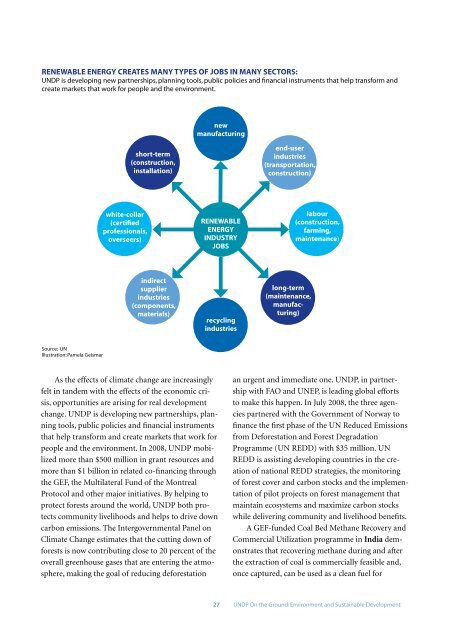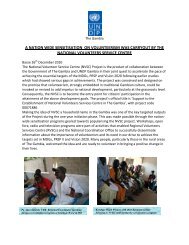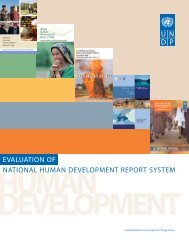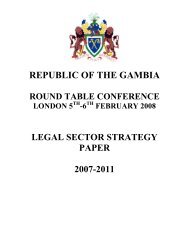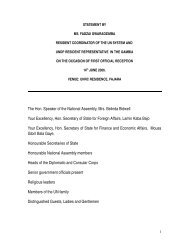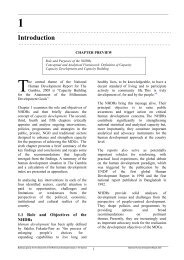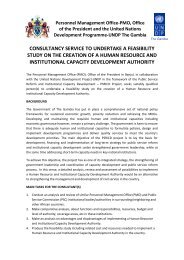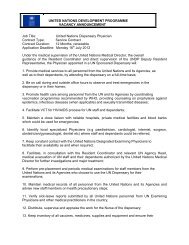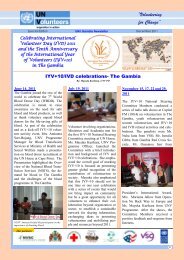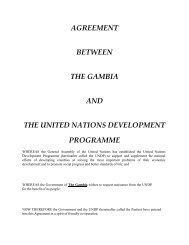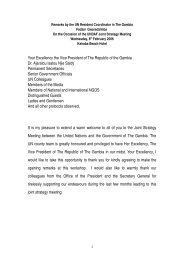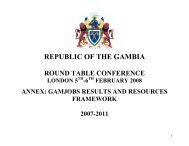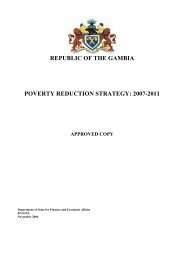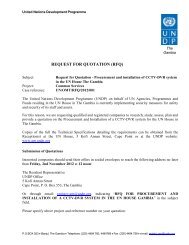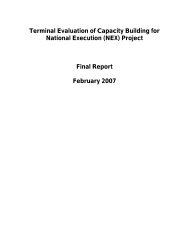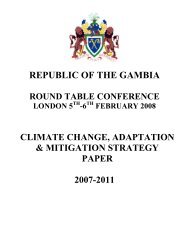Annual Report 2009 - United Nations Development Programme
Annual Report 2009 - United Nations Development Programme
Annual Report 2009 - United Nations Development Programme
You also want an ePaper? Increase the reach of your titles
YUMPU automatically turns print PDFs into web optimized ePapers that Google loves.
Renewable energy creates many types of jobs in many sectors:<br />
UNDP is developing new partnerships, planning tools, public policies and financial instruments that help transform and<br />
create markets that work for people and the environment.<br />
new<br />
manufacturing<br />
short-term<br />
(construction,<br />
installation)<br />
end-user<br />
industries<br />
(transportation,<br />
construction)<br />
white-collar<br />
(certified<br />
professionals,<br />
overseers)<br />
Renewable<br />
Energy<br />
Industry<br />
jobs<br />
labour<br />
(construction,<br />
farming,<br />
maintenance)<br />
indirect<br />
supplier<br />
industries<br />
(components,<br />
materials)<br />
recycling<br />
industries<br />
long-term<br />
(maintenance,<br />
manufacturing)<br />
Source: UN<br />
Illustration: Pamela Geismar<br />
As the effects of climate change are increasingly<br />
felt in tandem with the effects of the economic crisis,<br />
opportunities are arising for real development<br />
change. UNDP is developing new partnerships, planning<br />
tools, public policies and financial instruments<br />
that help transform and create markets that work for<br />
people and the environment. In 2008, UNDP mobilized<br />
more than $500 million in grant resources and<br />
more than $1 billion in related co-financing through<br />
the GEF, the Multilateral Fund of the Montreal<br />
Protocol and other major initiatives. By helping to<br />
protect forests around the world, UNDP both protects<br />
community livelihoods and helps to drive down<br />
carbon emissions. The Intergovernmental Panel on<br />
Climate Change estimates that the cutting down of<br />
forests is now contributing close to 20 percent of the<br />
overall greenhouse gases that are entering the atmosphere,<br />
making the goal of reducing deforestation<br />
an urgent and immediate one. UNDP, in partnership<br />
with FAO and UNEP, is leading global efforts<br />
to make this happen. In July 2008, the three agencies<br />
partnered with the Government of Norway to<br />
finance the first phase of the UN Reduced Emissions<br />
from Deforestation and Forest Degradation<br />
<strong>Programme</strong> (UN REDD) with $35 million. UN<br />
REDD is assisting developing countries in the creation<br />
of national REDD strategies, the monitoring<br />
of forest cover and carbon stocks and the implementation<br />
of pilot projects on forest management that<br />
maintain ecosystems and maximize carbon stocks<br />
while delivering community and livelihood benefits.<br />
A GEF-funded Coal Bed Methane Recovery and<br />
Commercial Utilization programme in India demonstrates<br />
that recovering methane during and after<br />
the extraction of coal is commercially feasible and,<br />
once captured, can be used as a clean fuel for<br />
27 UNDP On the Ground: Environment and Sustainable <strong>Development</strong>


